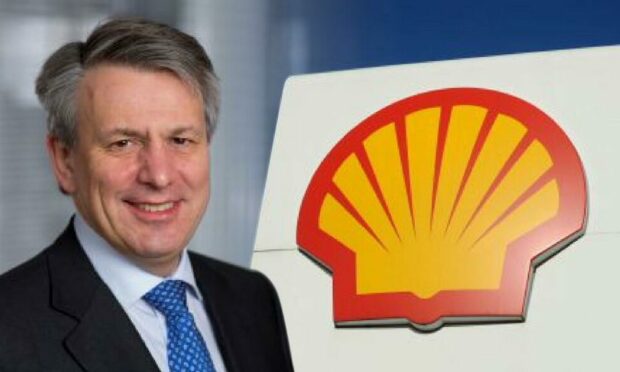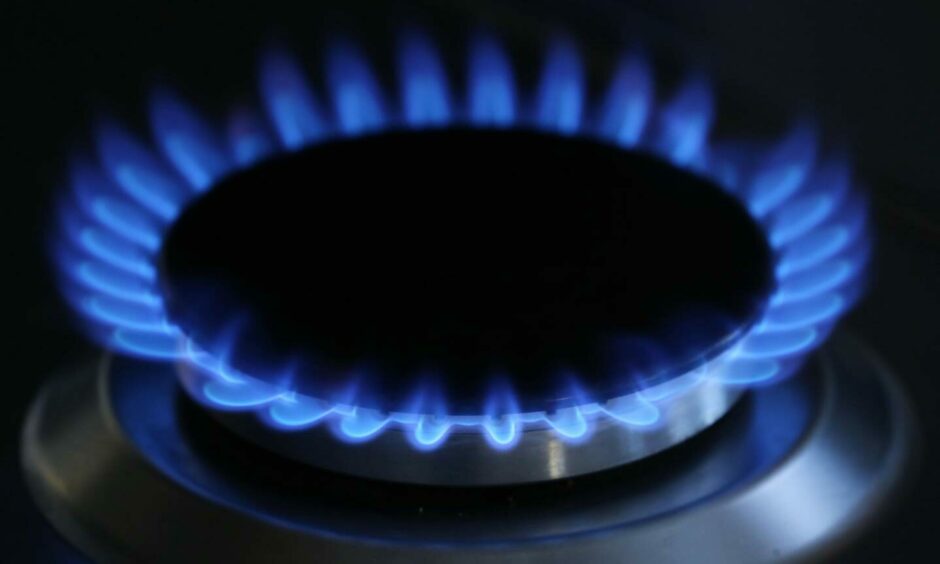Oil giant Shell has increased its profit nearly fourteen-fold as the company benefited from rising oil and gas prices.
Boss Ben van Beurden said 2021 was a “momentous year for Shell” in a statement as the firm revealed its fourth quarter results.
Shell said its pre-tax profit reached $16.3 billion (£12bn) in the last three months of 2020, up from just $1.2bn the quarter before.
Tight global supplies and geopolitical tensions in Eastern Europe and the Middle East have boosted oil prices in the UK and Europe by about 15% so far this year.
Over the past week, crude benchmarks hit their highest prices since October 2014, with the key UK index Brent touching $91.70 on Friday.
Shell’s upstream business sold gas for $8.88 per thousand cubic feet, an increase of over 44% compared with a quarter earlier and more than double the price that Shell was getting just six months before.
Calls for tax to ease cost of living crisis
The oil and gas price rises facing consumers in the UK and Europe are a key factor in what has been dubbed the cost of living crisis.
Higher energy prices are a major driver in the rate of inflation which has hit heights not seen in decades.
Shell’s good news prompted campaigners to call again for oil and gas firms to be taxed in order to defray the effects of spiralling inflation.
Greenpeace said: “Instead of leaving families to foot the bill for the gas price crunch, Rishi Sunak should tax the bloated profits of fossil fuel giants and use the money to help cash-strapped households and insulate homes.”
Similarly Tessa Khan, director of Uplift, accused the company of “gross profiteering” at a time when families are going to “struggle to heat their home”.
But Shell ‘not convinced’ on windfall tax
Mr van Beurden said the current situation is “very concerning” but that he’s “not convinced” that a windfall tax would help with supply or demand.
He said one of the ways Shell could help the situation is by “staying in business”.
In recent weeks North Sea oil and gas chiefs have voiced concerns that a windfall tax could incite companies to invest elsewhere.
Trade body Offshore Energies UK (OEUK), which recently changed its name from Oil and Gas UK (OGUK), also claimed it would reduce the amount of cash companies were able to spend on the energy transition.
Mr van Beurden said: “We still want to continue to invest in the UK North Sea, and particularly in gas projects that will help alleviate pressures in the near and mid-term.
“There’s actually quite a funnel of good gas projects that we want to develop with relatively short timelines.
“Of course we are looking for a favourable fiscal environment to make these investments tangible so that we’re incentivised to prioritise capital towards the UK.”
Shareholders bonus
Meanwhile, Shell announced plans to return $8.5bn to shareholders by buying back their shares. This includes $5.5bn it raised from the sale of an oilfield in the US Permian Basin.
“We delivered very strong financial performance in 2021, and our financial strength and discipline underpin the transformation of our company,” Mr van Beurden said.
He added: “We have ambitious plans to generate shareholder value, to decarbonise our products and to provide energy to our customers while respecting nature.”
Regulator sets price cap
The energy regulator Ofgem revealed that the energy price cap is to rise by more than 50% because of soaring wholesale gas prices, meaning the average bill could hit £1,915.
Chancellor Rishi Sunak confirmed the UK treasury will step in to help low-income families in Scotland and across Britain to deal with the rising costs.
Wind not Cambo in the North Sea
Although it has benefited from the recent recovery in oil and gas prices, Shell made waves when it walked away from the controversial Cambo oil and gas field as it faced significant pressure from environmental activists and government ministers.
Shell – which owns 30% of the field along with operator Siccar Point – revealed it had decided not to move forward with an investment decision on the field in December.
Speaking on a press call, Mr van Beurden said the controversial North Sea project wasn’t the “best project in our funnel” so it “didn’t make sense” to pump money into it.
He also revealed the cash that had been set aside for Cambo has now been spent elsewhere.
Campaigners claimed Shell’s decision was a “death blow” to the project.
In a move to cleaner energy, Shell and its joint venture partner Scottish Power were successful bidders in the recent ScotWind offshore wind farm leasing round.
They are set to develop the largest of the 17 projects to be developed in Scottish waters, with the 3GW MarramWind floating development 50 miles northeast of Peterhead.
Shell paid £86m in option fees to the Scottish Government to win the licenses.


